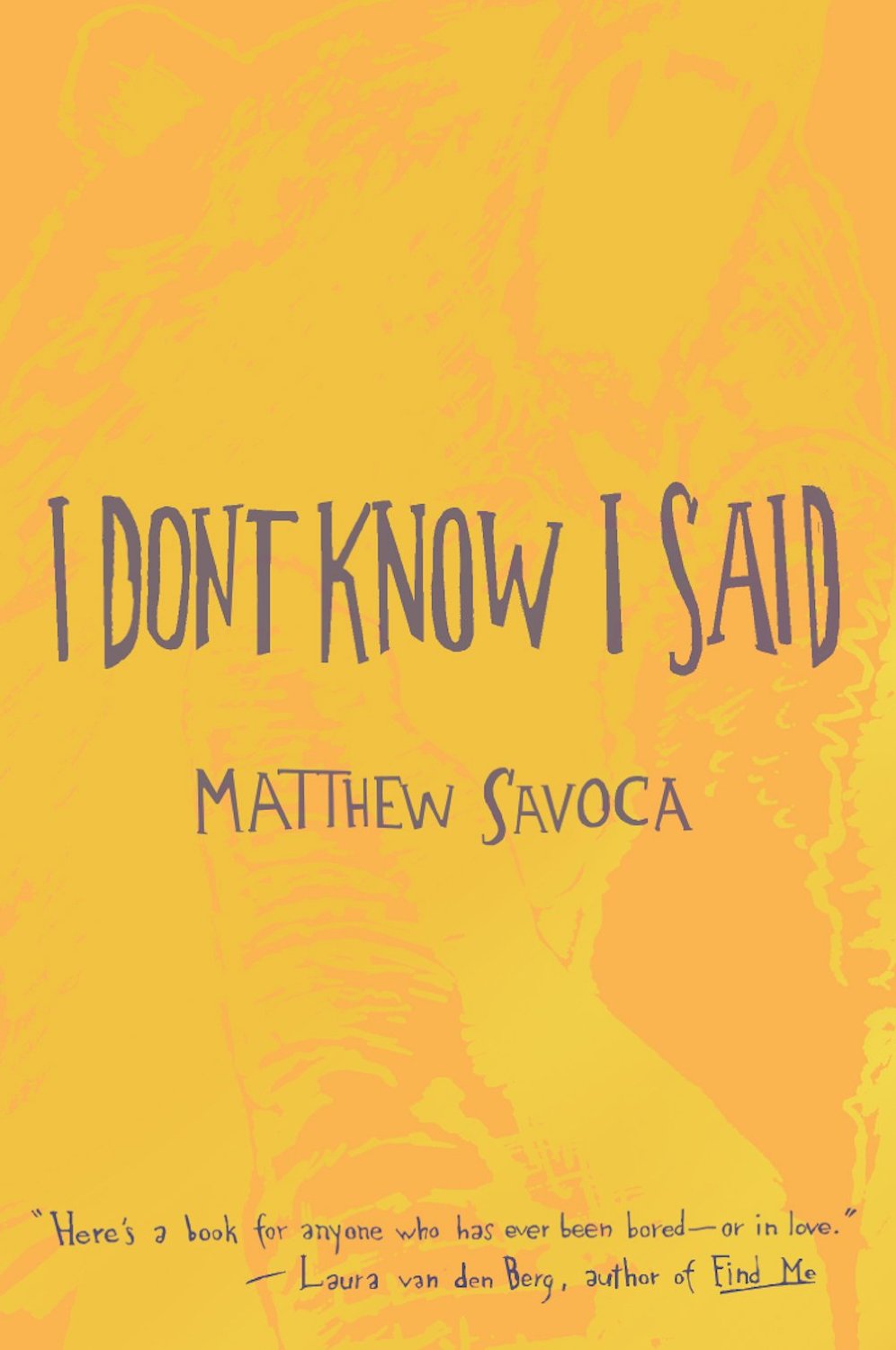There’s something so wonderfully intrinsic about the American road trip. It’s so deeply ingrained in American youth culture that embarking on one feels like a rite of passage. The road trip has been a classic impetus for many of the greatest (and irreverent) flicks and literature about young people coming-of-age, and in Matthew Savoca’s novel I Don’t Know I Said, this particular adventure is shared between a couple in their 20s, Arthur and Carolina, told from the point-of-view of Arthur who goes searching for answers, even though he isn’t sure of the questions he’s asking himself. All he knows that he wants to feel alive but doesn’t know how. In fact, he barely even knows how to communicate with his girlfriend. Most of the time he’s hitting an internal brick wall of I don’t knows, and it’s that devil of a phrase that keeps coming out of Arthur’s mouth (and where the book gets its title).
Arthur’s deadpan narrative is undoubtedly sad and lonely, yet finds comfort in the state of the unknown. IDKIS reminds me a bit of Sofia Coppola’s film Somewhere (of course, the film version of this book could more appropriately be called “Everywhere”) in that even though our duo keeps moving forward, a stale stillness in the air looms and haunts them in the car, following them across the country. Arthur’s attentive observations of boredom and self-conscious unrest are interweaved on every page: “We were eating in silence, except for Carolina asking meaningless questions about the quality of the food;” or “I said, ‘It will change, things will happen, stuff will,’ and all of a sudden I didn’t know what I was saying again. I thought what I’d said sounded really dumb.”
For the mid-to-late 20-something set, the quiet punch that is IDKIS may turn out to be this year’s most relatable response to the influx of New Adult Fiction that’s out there—it is the heaviness that comes with knowing bigger life decisions eventually have to be made and neither Arthur nor Carolina (nor the reader, to be honest) is ready to confront them. It examines a couple whose love for each other has reached a point of fight or flight, and the unsettling calmness that occurs before the storm. They’re killing time or desperately holding on, depending how you look at it. Here, the sheer symbolic beauty of the road trip concept grips; the journey itself might be aimless but the highways all eventually lead to a destination.![]()
